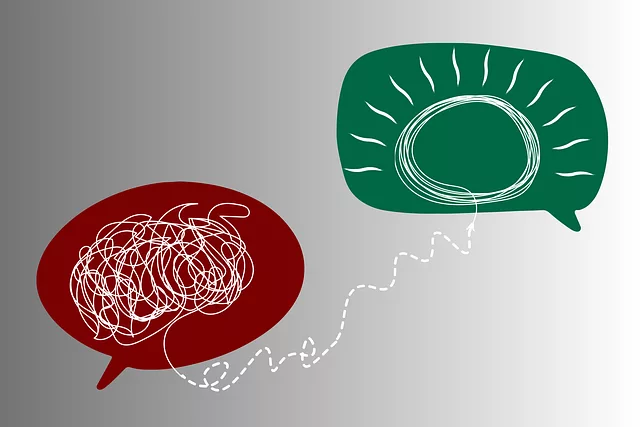The Denver Kaiser Mental Health Programs' Crisis Intervention Teams (CITs) provide vital, multidisciplinary support during acute crises, empowering professionals with de-escalation techniques and emotional regulation skills. Their holistic approach includes specialized training for first responders, healthcare providers, and community members, focusing on evidence-based practices like Mental Wellness Journaling Exercises to build resilience. Through immersive simulations and peer learning, these programs enhance problem-solving, cultural sensitivity, and confidence, ensuring tailored, effective care for diverse individuals across Denver and beyond.
“Crisis intervention team (CIT) training is a critical component of mental health support, especially in communities like Denver. This article explores the essential role these teams play and delves into the innovative programs offered by the Denver Kaiser Mental Health Programs. We’ll examine the structured training that equips professionals with the skills to handle diverse crises effectively. From understanding CITs’ unique value to analyzing the Denver Kaiser approach, this guide highlights how comprehensive training benefits both practitioners and those in need.”
- Understanding Crisis Intervention Teams: A Vital Resource in Mental Health Support
- The Denver Kaiser Mental Health Programs: An Overview of Their Approach and Services
- Training Programs: Essential Components for Effective Crisis Intervention Teams
- Benefits and Impact: How These Programs Prepare Professionals to Handle Real-World Crises
Understanding Crisis Intervention Teams: A Vital Resource in Mental Health Support

Crisis Intervention Teams (CITs) are a vital resource in mental health support, offering immediate and specialized assistance during acute crises. These teams, often composed of trained professionals from various disciplines, such as psychology, social work, and emergency medical services, play a crucial role in Denver’s Kaiser mental health programs. By integrating CITs into the community, these programs enhance risk management planning for mental health professionals, ensuring they have the tools to de-escalate situations and provide effective interventions.
Through comprehensive training, CIT members learn strategies to manage high-risk individuals experiencing severe emotional distress, including depression prevention techniques and skills in emotional regulation. This proactive approach not only improves outcomes for those in crisis but also fosters a culture of care and resilience within the mental health support system.
The Denver Kaiser Mental Health Programs: An Overview of Their Approach and Services

The Denver Kaiser Mental Health Programs stand out for their holistic approach to crisis intervention, focusing on both individual and community well-being. They offer a range of services tailored to address mental health crises effectively. Their programs include specialized training for first responders, healthcare professionals, and community members, ensuring everyone involved is equipped with the latest techniques in crisis management.
One notable aspect of Denver Kaiser’s approach is their emphasis on building resilience and confidence through evidence-based practices. They facilitate Mental Wellness Journaling Exercises, encouraging individuals to reflect on their thoughts and emotions, thereby promoting positive thinking. This guidance empowers people to take an active role in managing their mental health, fostering a sense of control during crises.
Training Programs: Essential Components for Effective Crisis Intervention Teams

Crisis intervention team training programs are integral to equipping professionals with the necessary tools to handle mental health crises effectively. These programs, often offered by renowned institutions like the Denver Kaiser Mental Health Programs, focus on several key components. Firstly, they impart knowledge and skills in de-escalation techniques, enabling teams to soothe agitated individuals and defuse potentially violent situations. Secondly, training emphasizes emotional regulation strategies, empowering team members to manage their own emotions while providing support to those in distress.
Additionally, these programs delve into the crucial aspect of cultural sensitivity in mental healthcare practice. By fostering an understanding of diverse backgrounds and perspectives, crisis intervention teams can offer tailored care that respects individual needs and beliefs. This inclusive approach not only boosts confidence among team members but also enhances the overall effectiveness of interventions, ensuring a more positive outcome for those facing mental health challenges.
Benefits and Impact: How These Programs Prepare Professionals to Handle Real-World Crises

Crisis intervention team training programs, such as those offered by Denver Kaiser mental health programs, equip professionals with invaluable tools to navigate real-world crises effectively. Through immersive simulations, evidence-based strategies, and peer-to-peer learning, these programs foster a culture of preparedness among healthcare providers. By enhancing their problem-solving skills, emotional resilience, and confidence boosting abilities, participants gain the expertise needed to respond swiftly and compassionately during high-stress situations.
Moreover, integrating cultural sensitivity in mental healthcare practice is a cornerstone of these training initiatives. They expose professionals to diverse cultural perspectives, promoting greater healthcare provider cultural competency training. This ensures that crisis intervention teams can offer tailored support to individuals from various backgrounds, addressing not just the immediate crisis but also the unique societal and cultural factors at play. Such comprehensive preparation enables healthcare providers to deliver more effective and equitable care in Denver and beyond.
Crisis intervention team training is a critical component in enhancing mental health support systems, as highlighted by the innovative programs at Denver Kaiser. These teams play a vital role in empowering professionals to handle diverse crises effectively. Through comprehensive training, including scenario-based learning and role-playing, members gain practical skills to de-escalate situations and provide immediate assistance. The benefits are far-reaching, improving not only individual outcomes but also contributing to safer communities. By investing in these programs, organizations like Denver Kaiser ensure their crisis intervention teams are well-prepared to make a meaningful impact during critical moments of need.






